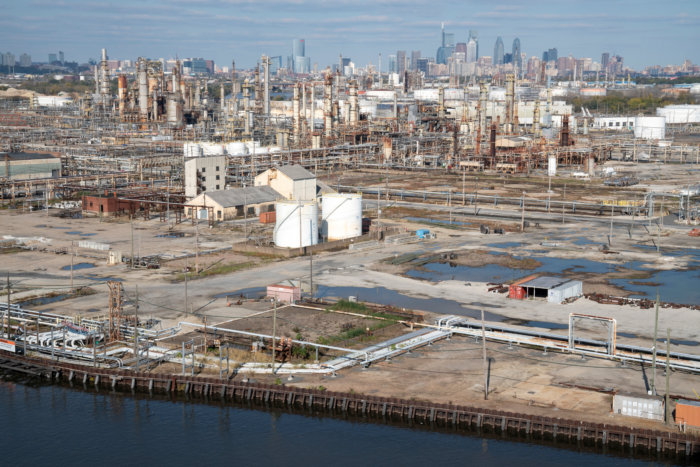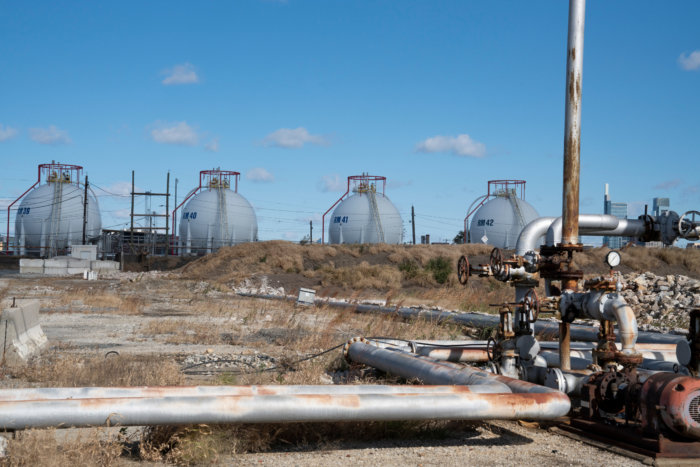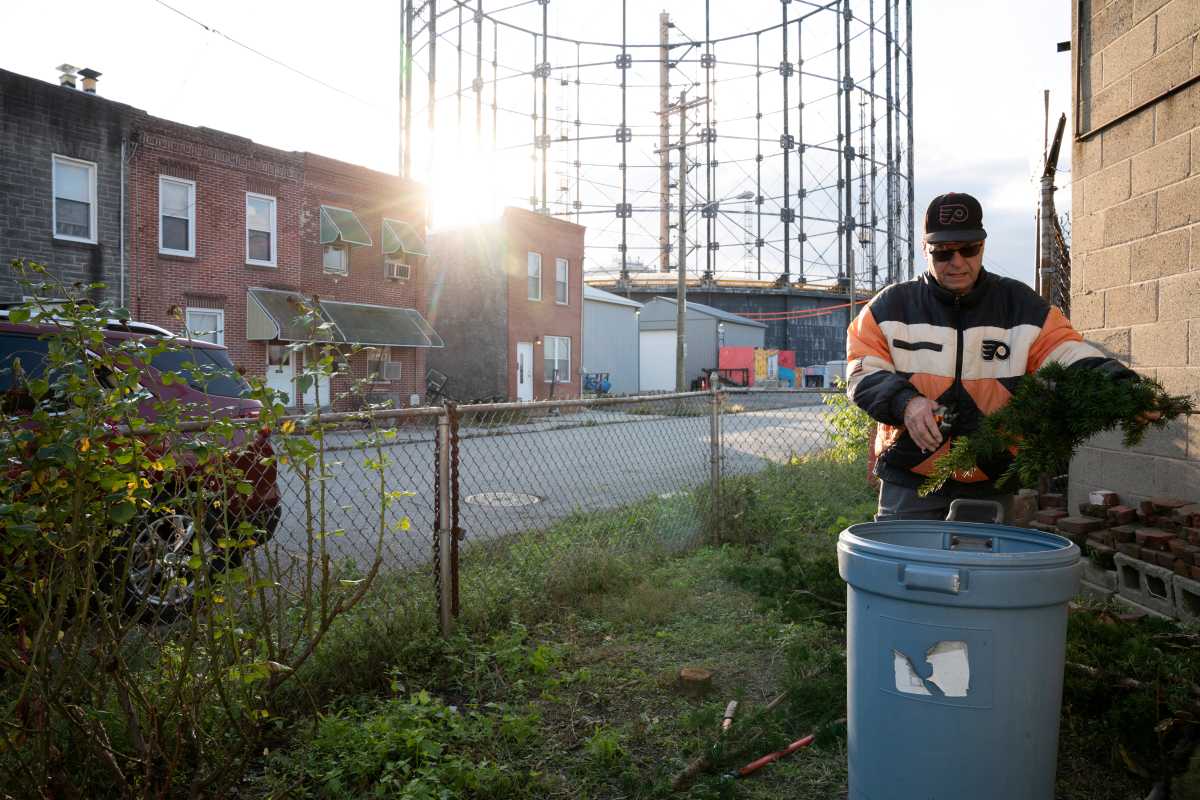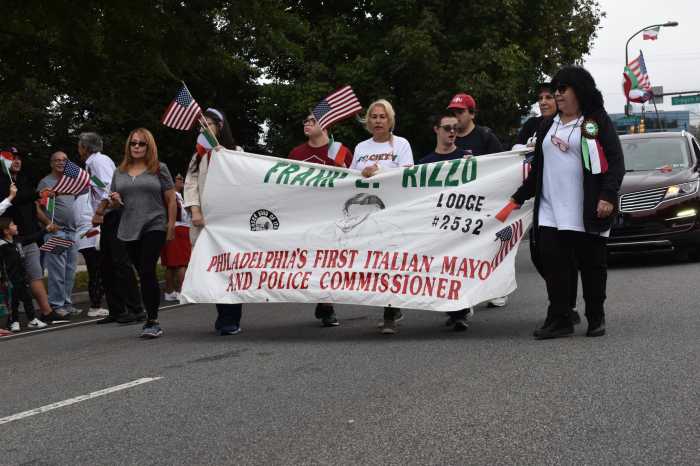A project to clean up and redevelop the former Philadelphia Energy Solutions refinery, once the largest such facility on the East Coast, is on track, according to the company that purchased the site following a devastating explosion in June 2019.
Crews are being tasked with removing 850,000 barrels of tank product, 30,000 tons of asbestos and 950 miles of piping. More than 100 buildings and other structures are being ripped down.
Demolition is expected to take four years, and it will be 13-to-15 years before the South Philadelphia site is fully redeveloped into an array of buildings for use as warehouses, light industrial facilities and science labs.
But even as the massive undertaking progresses, community leaders want to hear more from Hilco Redevelopment Partners, the firm that paid $225.5 million for the former refinery more than a year ago.
“We really have not heard from Hilco at this point in time,” said Carolyn Moseley, a leader in the Eastwick neighborhood of Southwest Philadelphia. “There’s been no real clear explanation as to what they propose to do with the site.”
Moseley is a member of the United South/Southwest Coalition for Healthy Communities, an organization formed in April to negotiate a community benefits agreement with Hilco.
CBAs are legally-binding agreements between developers and neighborhood groups, typically on larger projects, that usually incorporate community investments outside the property in question or prohibit certain uses.
Among the coalition’s priorities is securing funding for education programs, health initiatives, job training and environmental sustainability, though their requests cannot be more detailed until they get more information, Moseley said.
“A distribution center in and of itself may not be a problem. It is the impact that we need to look at,” she said. “For example, what are the hours of operations going to be? What does that do in terms of traffic?”
Jeremy Grey, Hilco’s executive vice president for industrial development, told Metro that a CBA “is in the works currently.”
While coalition leaders said the company has not met with them or shared detailed plans, Hilco has held virtual public meetings and created an advisory council composed of two dozen local groups.
“The feedback has been very positive,” Grey said. “But I think, ultimately, it’s really going to be a major impact to see what the site is now converted into — a sustainable, state-of-the-art development.”

Grey explained that, as the redevelopment progresses, thousands of trees will be planted, solar panels will be installed, infrastructure will be built to accommodate electric cars and all buildings will be energy-efficient.
He noted that Hilco has exceeded its hiring goals for minority workers and Philadelphia residents. Of those employed at the site, 52% are people of color and 79% live in the city, according to the company.
Hilco said Tuesday that it will be funding a 10-year $250,000 scholarship program for students from South and Southwest Philadelphia attending community college. The firm previously established an internship program in cooperation with the School District of Philadelphia.
PES declared bankruptcy shortly after the explosion, which a federal safety board blamed on an aging metal pipe. It caused a blaze that destroyed one of the refinery’s units.
As a result of the failure, 3,200 pounds of hydrofluoric acid, a toxic chemical compound, was released into the atmosphere, according to a Reuters report.
Since acquiring the property in June 2020, Hilco has been focused on decommissioning, remediation and demolition, Grey said.
Half of the refinery has been decommissioned, and 60% of the asbestos has been abated, according to the company. About 80% of the tanks have been removed, and the demolition is one-tenth complete.
“Overall, things are on track, which is great, and we’re making a lot of progress on the decommissioning and demolition front,” Grey said.
Much of the north side of the site, above Passyunk Avenue, has been cleared; Grey said the land there will be graded next summer, and Hilco plans to begin its initial phase of construction in fall 2022.

In the coming months, the company anticipates releasing a master plan that will provide details on the size and design of the new buildings. Part of the 1,300-acre site will be reserved for a “life sciences campus,” Grey said.
“From a market perspective, the virus did create more of a demand for the product type that we’re focused on, so that’s specifically life science and e-commerce,” he said.
An analysis commissioned by Hilco predicted that the project will create 13,000 temporary and 19,000 permanent jobs, some of which will be indirectly related to the businesses at the redeveloped property.
Moseley, meanwhile, said she and other neighborhood leaders and activists are looking forward to a substantial engagement process.
“We stand ready and eager to listen to what it is that they have to say,” she added.

Metro is one of more than 20 news organizations producing Broke in Philly, a collaborative reporting project on economic mobility. Read more at brokeinphilly.org or follow on Twitter at @BrokeInPhilly.





























